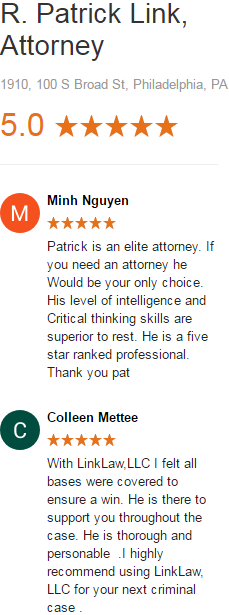
In criminal law, it is not at all uncommon for a victim or witness of the prosecution to come into court, swear to tell the truth, and then try to become the defense attorney’s best friend during direct examination. He or she will suddenly be adamant that the defendant was wrongfully arrested and is in fact innocent. When asked by the prosecutor about a prior written statement taken by police that contradicts their testimony, the witness will deny ever making the statement, claim that the police forced them to make one, or that they were so high on drugs they don’t remember what happened or what they said.
It may even be obvious that the witness is committing perjury. When this happens, clients often get excited and think that it means an automatic “not guilty”. Not so fast! Many prosecutors actually prefer when their witnesses recant, or “go south.”
When “Prior Inconsistent Statements” Conflict w/ Sworn Testimony
The law is actually crafted to deal with these situations under Pa. R.E. 803.1(1). Under this rule, a prior inconsistent statement (i.e., statement made to police at the time of arrest) is admissible for the truth at trial if it is a verbatim writing signed and adopted by the witness, and the witness is available for cross examination.
How can the Prosecutor Use This to Their Advantage?
A prosecutor is free to argue that a jury can disregard what a witness testifies to at trial, and instead believe he/she was telling the truth in their original statement to the police. This is frequently the case in domestic violence situations where the victim and the defendant have patched up their relationship and/or the victim relies on the defendant financially. It also occurs in almost every violent crime case where the witnesses come from a “no snitch” community and testifying can lead to being ostracized or worse. In those cases, the prosecutor will argue that when the victim was within in the safe confines of a hospital speaking with detectives, they hadn’t yet considered the repercussions of “snitching”, and therefore the prior statement was made under “highly reliable circumstances.”
How Can a Criminal Defense Attorney Use This to Their Advantage?
Manycriminal defense attorneys do not realize how dangerous prior inconsistent statements can be and simply rely on the inconsistencies to paint the witness as a liar. This is a HUGE MISTAKE and a sign of inexperience.
The fact is, many detectives understand the game so well they know they can take liberties with the original statement. They know that in the end, after the witness denies even a portion of the statement, it can be chalked up to fear on behalf of the witness. Who is going to believe the drug addict’s testimony that she never saw the defendant with a gun when a polished, well-spoken detective contradicts her in court?
A good criminal defense attorney can often sniff out when an overzealous detective has gone this route. For example, many detectives simply cannot filter out “cop speak.” There have been several occasions where I have seen prior alleged “verbatim” (i.e. word for word) statements from witnesses (including drug dealers and prostitutes) contain obvious police lingo. In one case, a detective read what was supposed to be a verbatim statement. All was going swimmingly for the prosecution until the part of the “statement” where the witness said that after the shooting the defendant immediately jumped into his “motor vehicle”. OOPS! Lay people say “car” or “ride”. Police say “motor vehicle”.
In that case, it was easy to argue that the detective did not in fact take a VERBATIM statement but instead added his own details. And it was easy for the jury to believe the witness when he testified that he never saw the shooting. Other “buzz words” I look for to argue that the prior statement was fabricated by police include “narcotics” (instead of “drugs”), and “weapon” (instead of “gun”, “burner”, etc).
Police Coercion & Forced Statements
Witnesses often do feel like they were forced to make a statement by police. When police coercion exists or even appears to be a possibility, then it is easier for the defense to argue that the prior statement to police should not be considered for the truth of what actually happened. In these cases I look at the timing of the statement- if a witness was brought in at 7PM, then why did it take until 3AM to get a one-page statement? Is it because the witness was himself a suspect and therefore told he would be charged if a statement to the liking of the police wasn’t signed? I also look to see if the witness was on probation or had any active cases at the time of the statement. In those situations, it can be argued that the witness gave false information, or agreed to sign off on a false statement to gain favorable treatment for himself.
Sometimes the police are simply unprepared for a witness to recant. In another recent case of mine, a witness at a preliminary hearing denied ever making a statement to the police, denied being robbed, and denied having ever seen my client. While he did provide a signed, verbatim statement to the police that he was robbed at gunpoint, the detective never asked the witness to identify anyone during the course of the interview.
The prosecutor attempted to sidestep this problem by offering the testimony of one of the responding police officers to state that the victim told them on the scene that the defendant robbed him. The prosecutor, after unsuccessfully arguing that this out-of-court statement should be admissible as substantive evidence as a prior inconsistent statement, tried to rely on Pa.R.E. 803.1(2). This is the hearsay exception known as “Statements of Identification”, which allows prior out-of-court statements of identification into evidence provided that the witness testifies to the making of the prior identification. Thus, because there was no identification in court, or in the prior signed statement, there was no evidence identifying my client as the person who robbed the victim and the case was properly dismissed.
In Closing
Sometimes the factors listed above are not present. It is still imperative to determine a reason why the original statement to the police was fabricated or exaggerated. Failure to do so will usually result in a guilty verdict, much to the surprise of the defendant or the inexperienced defense attorney. Anytime witnesses give statements to police, it is imperative to conduct a thorough and aggressive investigation because the testimony of the witness at trial can never be predicted. You have to be ready for anything!








